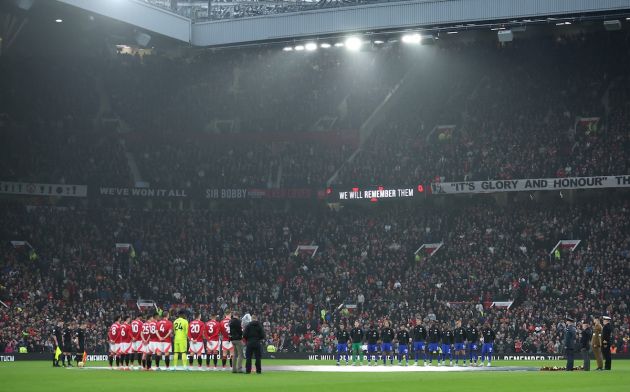In a move that has angered many of its loyal supporters, Manchester United recently announced a significant increase in ticket prices for its Members, a decision that has been widely criticized as a “shameful act” against the very fans who have stood by the club through thick and thin. For a club with such a rich history and global fanbase, the move represents not only a betrayal of the supporters who fill Old Trafford every week but also highlights the growing financial disconnect between elite football clubs and the fans who help fund them.
The Ticket Price Hike: Details and Backlash
The increase in ticket prices for Manchester United’s members comes amid a broader trend in the Premier League of rising costs for matchday experiences. According to the club’s recent announcement, ticket prices will be raised across a number of categories for the 2024-2025 season. The most significant increases will be seen in the most accessible areas of the stadium, affecting long-standing members who have been priced out by these hikes.
While Manchester United has cited inflation and the rising costs of running a modern football club as justifications for the increase, fans have voiced their frustration, arguing that such price hikes are disproportionate and unfair, particularly when the club is already one of the richest in the world. The decision has sparked outrage from both local supporters and fans who travel from across the globe to watch their beloved team.
Many fans feel that Manchester United is prioritizing profits over the well-being of its supporters. The new prices come after years of rising costs for fans, with ticket prices already higher than those of many of their Premier League counterparts. For loyal season-ticket holders, the price increase represents a further burden on those who have already committed to supporting the club through thick and thin.
The increase in ticket prices for members is seen by many as another example of the growing commercialization of football, where the interests of the average fan are being sacrificed in favor of increasing revenue streams for club owners, many of whom are absentee investors. This move follows a long history of discontent regarding Manchester United’s ownership by the Glazer family, who have often been accused of milking the club for profit while failing to invest in the areas that matter most to fans—such as the matchday experience and infrastructure.
The Disconnect Between Fans and Ownership
The Glazers, who took control of Manchester United in 2005 through a controversial leveraged buyout, have long been criticized for prioritizing commercial interests over the legacy and traditions of the club. Over the years, fans have protested against the ownership, citing the increased debt burden the club has been subjected to and the perceived lack of connection between the owners and the club’s passionate fanbase. The ticket price hike is seen by many as another indication that the Glazers’ primary concern is maximizing profits, rather than fostering a deep connection with the supporters who have always been the lifeblood of the club.
Moreover, Manchester United’s recent performance on the pitch has only intensified fan dissatisfaction. While the club has shown signs of progress under manager Erik ten Hag, they have also endured inconsistency, and their inability to challenge for major titles in recent seasons has left many supporters feeling disillusioned. The ticket price hike, then, feels like an insult to fans who are already paying top dollar for a team that has not been performing at the level expected of a club of United’s stature.
A Growing Trend Across Football
Unfortunately, Manchester United’s decision is part of a wider trend in English football. Across the Premier League, ticket prices have steadily increased over the years, with many clubs now charging more for a matchday experience than ever before. For many fans, the cost of attending matches is becoming increasingly prohibitive. Travel, accommodation, food, and tickets have all risen in price, making it harder for working-class fans, particularly those who support the club on a long-term basis, to afford to watch their team in person.
In contrast, wealthy corporations and global sponsors continue to secure VIP treatment, while the ordinary fan is often left to bear the financial burden. This growing divide between the elite and grassroots supporters has sparked a sense of alienation within football, with fans feeling as though they are being priced out of the game.
The Fans’ Response
In response to the price increases, many Manchester United supporters have expressed their anger and disappointment, both online and in the stands. Some have called for boycotts of matches, while others have organized protests outside Old Trafford to voice their dissatisfaction. There is a feeling among fans that the club is no longer the “people’s club” it once was, but rather a corporation focused on profit above all else.
The increase in ticket prices for members is a clear signal that, for Manchester United, the priority is no longer about making football accessible to all but instead about maximizing revenue at the expense of loyal supporters. The decision serves to further cement the growing sense of disconnect between the fans and the club’s ownership, as the financial interests of the Glazers appear to take precedence over the people who have supported Manchester United for generations.
Conclusion: A Shameful Act
In the eyes of many, Manchester United’s decision to raise ticket prices for members is a shameful act that further distances the club from its roots. The fans who have supported the club through thick and thin, who have filled Old Trafford for decades, are now being forced to pay even more for the privilege of watching their team. As football continues to evolve into a business first and foremost, the question remains: will the owners of Manchester United, and other clubs like it, ever prioritize their supporters again? For now, it seems the loyal fans will continue to pay the price for the growing commercialization of the beautiful game.







